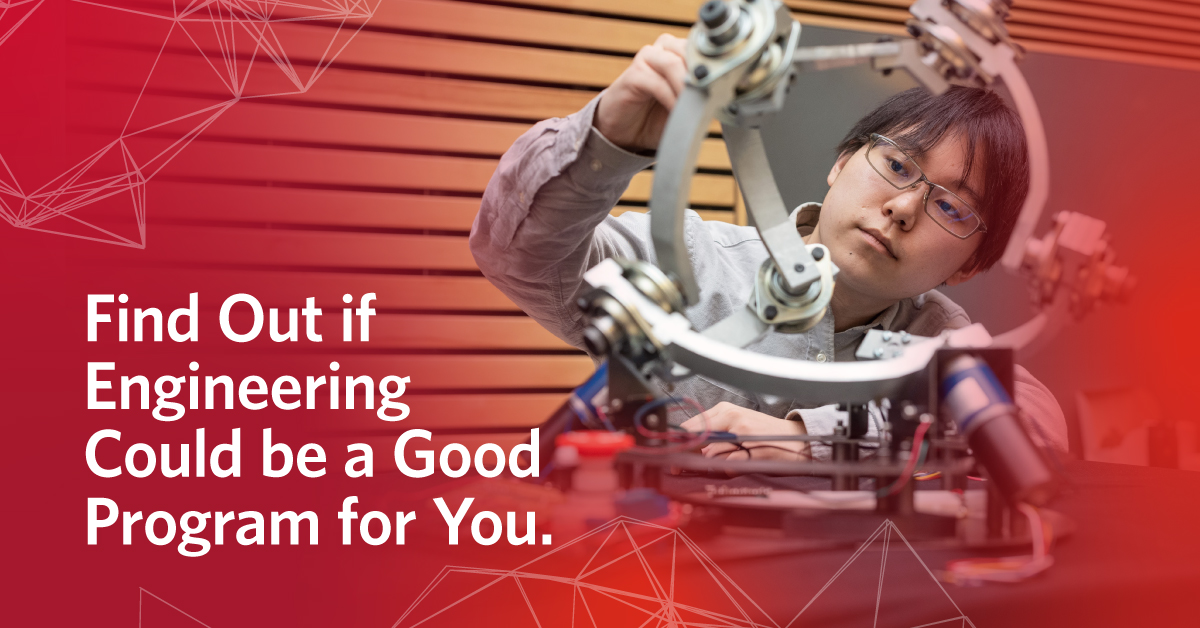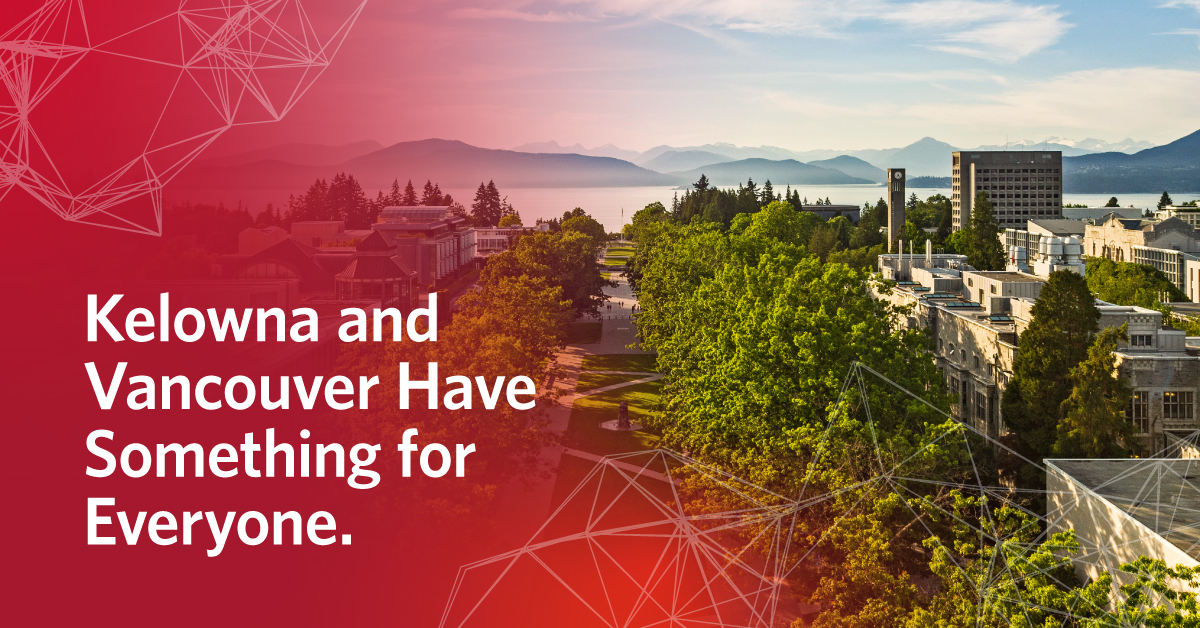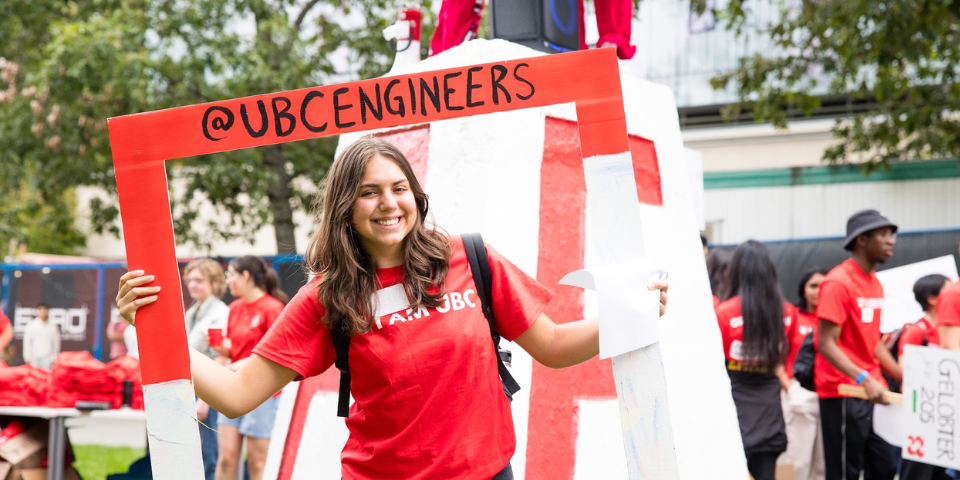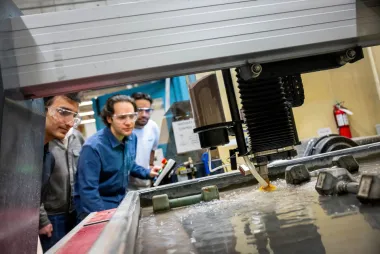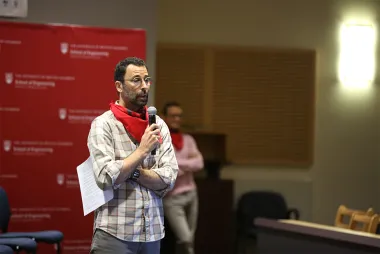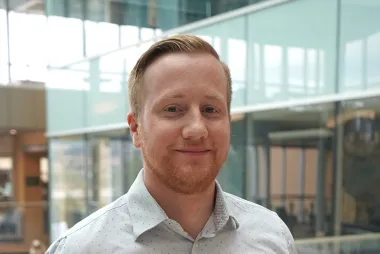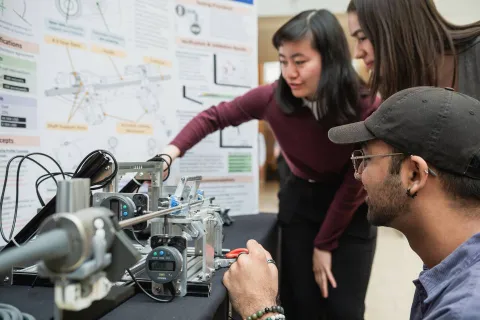
You’ve got questions? We’ve got answers! We talked with Student Recruitment Officer Erin Fehr about some of the questions she’s most frequently asked by students who want to learn more about engineering.
What kind of engineering should I do?
Another great question! And the answer is as unique as you are. If you’re thinking about engineering, you might already have a sense of what area of engineering interests you the most, whether mining or manufacturing, civil or biomedical. At UBC, you can choose from 14 different engineering specializations at our Vancouver campus and four specializations at our Okanagan campus.

14 Different Engineering Specializations
UBC's engineering curriculum emphasizes real-world applications, encouraging students to work on practical projects that address current global issues. The programs also promote interdisciplinary collaboration, enabling students to engage with diverse fields and develop well-rounded problem-solving abilities.
At both campuses, our first-year program introduces you to all the engineering specializations so that you can make an informed choice. Many students discover their passion after working on a first-year project or talking with professors or upper-year students about their specific area.
How will I learn to be an engineer?
At UBC, you learn by doing. So that means you’ll be gaining foundational knowledge and then applying it in your labs, course-based projects and in a capstone project in your final year in partnership with a community or industry partner.

Work Experience
A competitive edge before you graduate: network with employers, gain paid work experience, hone your professional skills.
You will also learn to be an engineer through optional co-op or work experiences, undergraduate research opportunities or participating in design teams. Finally, throughout your courses you will learn to think in new ways – to adopt a problem-solving, design-thinking approach that will enable you to come up with innovative solutions to complex challenges.
Is a BASc the same as a BEng?
In Canada, there is no standardized naming convention for engineering degrees. At UBC, engineering students graduate with a Bachelor of Applied Science (BAsc) in their discipline. Other universities might have different names for their engineering degrees. UBC offers an accredited engineering program, which means your degree is recognized internationally.
No matter where you graduate from, to become a professional engineer and be able to call yourself an engineer, you need to take a few extra steps after you graduate. This includes being registered by the engineering regulatory body in a specific jurisdiction. For example, to work as an engineer in BC, you need to hold a degree from an accredited undergraduate program like UBC, and have three to four years of related work experience, pass an exam on professionalism and meet other criteria.
When can I start?
Begin by determining your eligibility and finding out more about our admission requirements. You can find information about the application process, admission requirements and deadlines on our How to apply page. We hope you’ll start your future at UBC Engineering.

